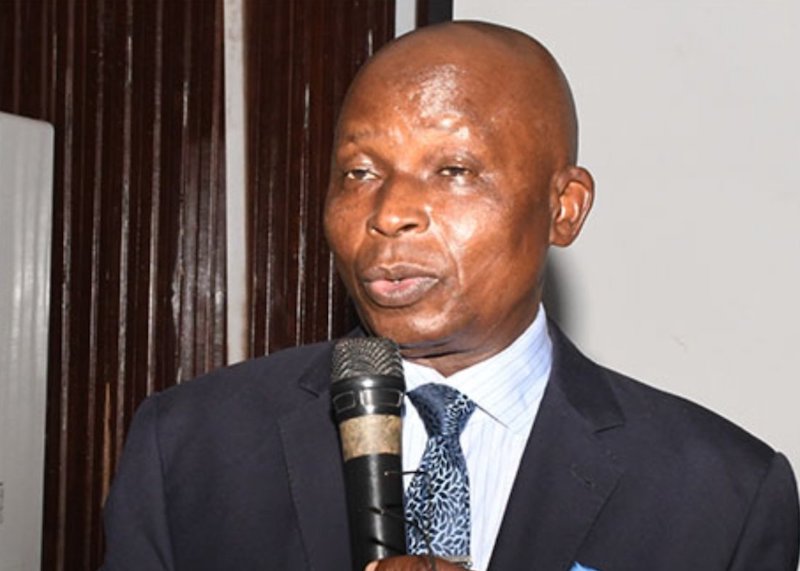Vice President Kashim Shettima says President Bola Tinubu led government is building a resilient economy that can withstand shock.
Shettima made this known in Abuja at the 30th Nigerian Economic Summi
By Nana Musa
Vice President Kashim Shettima says President Bola Tinubu led government is building a resilient economy that can withstand shock.
Shettima made this known in Abuja at the 30th Nigerian Economic Summit (NES30), with the theme: ”Collaborative Action for Growth, Competitiveness and Stability”.
“It is also important to note that stability is not just about managing crises as they arise. It is about building a resilient economy that can withstand shocks.
“As a nation, we must prioritise economic diversification,” he said.
Shettima added that the role of NES group was crucial in that process.
He said that the present administration under its Renewed Hope Agenda had embarked on bold and courageous reforms designed to create an environment that would boost a sustainable economic growth and shared prosperity.
“Our focus is on sectors that can offer inclusive and sustainable growth, such as agriculture, manufacturing, and the digital economy,” he said.
Shettima said that the digital economy held a very promising prospect for revitalising the economy.
According to a global finance consultancy output, there will be 65 million global talents by 2035.
“I am pleased to report that we are making significant strides in addressing several key issues, including regulatory and ease of doing business challenges.
“This progress will instill confidence in our collective ability to overcome those challenges,” he said.
Shettima said that the administration’s objective was to ensure that the Nigerian economy was inclusive.
He said the administration wanted an inclusive economy, where small and medium-sized enterprises can thrive alongside large corporations and where every citizen, regardless of location or background, could benefit from economic opportunities.
“We have initiated various programmes, such as the MSMEs hubs and single-digit loans for manufacturers designed to provide entrepreneurs with the support they need to succeed.
“We have also introduced a credit corporation to offer our workers consumer loans with single-digit interest.
“These initiatives collectively will grow the economy and ensure it remains competitive in Africa and globally,” the Shettima said.
Shettima said that the government was investing heavily in security operations to combat terrorism, banditry, and other forms of insecurity that threatens lives and livelihoods.
The vice president said that the administration was implementing fiscal reforms to stabilise the macro-economic environment.
“By removing fuel subsidies, unification of exchange rates, and debt management strategies are all part of a broader effort to restore economic balance and ensure long-term stability,” he said.
Shettima said that to achieve this, “we must strengthen our social safety nets and ensure that the most vulnerable members of society are protected during tough times.
“We are already expanding programmes like the National Social Investment Programme, National Poverty Reduction and Growth Strategy, and other livelihood support initiatives crucial to millions of Nigerians.
“However, we must do more to institutionalise these safety nets and make them a permanent feature of our economic architecture,” he said.
The vice president said that no single sector or stakeholder could address those challenges alone but through collaboration.
“The public and private sectors, civil society and international development partners collaborate to drive a shared vision for growth and development.
“I want to emphasise that the challenges before us were insignificant and manageable and could be overcome.
“With the right policies, the right partnerships and the right level of commitment, Nigeria can emerge stronger, more competitive, and more resilient,” he said.
Shettima said that the NES remains invaluable for fostering the dialogue and collaboration needed to move our country forward.
He said that like many other nations, Nigeria had experienced significant economic problems over the past few years.
“The challenges have been global as well as domestic, ranging from the COVID-19 pandemic and fluctuating oil prices to internal security issues, inflation, and structural weaknesses in our economy, such as over-reliance on oil revenue and lack of economic diversification.
“Nigeria’s growth trajectory has been volatile, heavily dependent on oil revenues, and unable to create enough jobs to keep pace with our rapidly growing population,” Shettima said.
The Minister of Budget and Economic Planning, Sen. Atiku Bagudu, in his remarks said that the Renewed Hope Agenda strategy was working for the country’s economy.
He said that the present administration had sustained its foreign exchange reforms, eliminating the hitherto multiple rates even as the Central Bank of Nigeria (CBN) regularly fine-tunes its guidelines to enhance monetary policy stability.
Bagudu said that the revised National Development Plan (NDP 2021 – 2025) incorporating the Renewed Hope priorities had a unique attribute of focusing on strategic sectors that will spur growth in the short to medium term.
He said that the summit modelled after the World Economic Forum remained one of the biggest platforms for dialogue among top policymakers and corporate leaders.
“The three decades of this partnership between the Federal Government and the Nigerian Economic Summit Group (NESG) has provided a veritable platform for interrogating public policy and proffering enduring solutions to the country’s socio-economic problems.
“This Summit has over the years, played a pivotal role in the sustenance of our national dialogue on the economy and framed our deliberations within the context of the aspirations for a better quality of life for our people.
“It discusses our vision of equity and social justice, the enviable economic and political order we are committed to creating and forms the basis of forging consensus by promoting and sustaining cooperation between the public and private sectors,” the minister said.
He said that the summit’s recommendations continued to inspire the government to reform critical sectors of the economy.
“For instance, the 29th summit emphasised the urgent need to tighten foreign exchange rules, broaden the official market, and harmonise fiscal and monetary policies for a balanced approach to economic stability.
“It highlighted infrastructure development as pivotal to sustainable economic growth, recommending prioritising power generation, road networks and transportation systems,” Bagudu said. (NAN)



